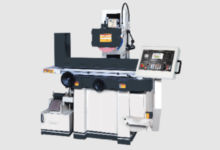what is cash flow in a business for sale

Understanding Cash Flow For Businesses For Sale
When you’re looking at businesses for sale in Nashville, understanding cash flow is probably the most important thing you can do. It’s not just about how much money a business makes on paper; it’s about the actual cash moving in and out. Think of it as the lifeblood of any company. Without enough cash, even a profitable business can run into serious trouble.
Defining Business Cash Flow
So, what exactly is business cash flow? Simply put, it’s the net amount of cash and cash equivalents being transferred into and out of a company. Positive cash flow means more money is coming in than going out, which is generally a good sign. Negative cash flow means the opposite – more cash is leaving than entering. This can signal problems, especially if it continues for a while.
Why Cash Flow Matters When Buying Businesses
When you’re considering buying a business, especially one of the many businesses for sale in Nashville, cash flow tells you a lot more than just the profit on the income statement. It shows you if the business can actually pay its bills, cover its debts, and fund its operations without needing to borrow more money constantly. For potential buyers, it’s a direct indicator of the business’s financial health and its ability to generate returns. You want to see that the business has enough incoming cash to keep things running smoothly and to pay you back for your investment. Talking to experiencednashville business brokers can help you sort through these details.
Cash flow is the reality check for a business’s financial performance. It’s the money you can actually use, not just what’s reported as profit.
Analyzing Operating Cash Flow
When you’re looking at businesses for sale, especially in a dynamic market like Nashville, understanding the operating cash flow is a big deal. It’s basically the money a business generates from its day-to-day activities. Think of it as the lifeblood that keeps the lights on and the doors open.
Sources of Operating Cash
Operating cash flow comes from a few main places. Primarily, it’s the cash you get from selling your goods or services. But it also includes any cash received from other regular business operations, like interest income or dividends, though these are usually smaller amounts. It’s important to see where this money is actually coming from.
Impact of Expenses on Cash Flow
Now, expenses are what take money out. Everything from paying your employees, suppliers, rent, utilities, and taxes reduces your operating cash flow. Even seemingly small costs can add up. When you’re evaluating businesses for sale, you need to look closely at these outflows to see how much is left over. High expenses can really eat into profits and cash.
Key Metrics for Operating Cash
There are a few numbers you’ll want to pay attention to. Net income is a starting point, but it’s not the whole story because it includes non-cash items like depreciation. You’ll also want to look at changes in working capital – things like accounts receivable (money owed to you) and inventory. A common metric is Operating Cash Flow (OCF) itself, often found on the Statement of Cash Flows. For those working with Nashville business brokers, they can help you break down these figures.
Looking at operating cash flow isn’t just about the current numbers; it’s about understanding the business’s ability to consistently generate cash from its core operations. This is what allows a business to pay its bills, reinvest in itself, and ultimately provide a return to its owner.
Here’s a quick look at how some common items affect operating cash flow:
- Revenue from Sales: Increases operating cash flow.
- Cost of Goods Sold: Decreases operating cash flow.
- Salaries and Wages: Decreases operating cash flow.
- Rent and Utilities: Decreases operating cash flow.
- Interest Expense: Decreases operating cash flow.
- Taxes: Decreases operating cash flow.
Evaluating Investing Cash Flow
When you’re looking at businesses for sale, especially in a dynamic market like Nashville, understanding the investing cash flow section of a company’s financial statements is pretty important. This part of the cash flow statement tells you about the money a company spends on or receives from its long-term assets. Think of it as the company’s investment activity. It shows whether the business is buying new equipment, selling off old assets, or investing in other ventures. For anyone considering buying a business, this gives you a look into how the company has been growing or shrinking its asset base.
Capital Expenditures and Cash
Capital expenditures, or CapEx, are the big purchases a business makes to acquire or upgrade its physical assets. This could be anything from buying new machinery for a manufacturing plant to upgrading the IT infrastructure for an office. When a business spends money on CapEx, it’s an outflow of cash. This is usually a sign that the business is investing in its future, trying to improve efficiency, or expand its capacity. For businesses for sale, a consistent pattern of CapEx can indicate a well-maintained and growing operation. However, very high CapEx could also mean the business is heavily reliant on new equipment, which might need frequent replacement. It’s a balancing act.
Asset Sales and Cash Inflows
On the flip side, when a business sells off assets, it generates a cash inflow. This could be selling old equipment that’s no longer needed, disposing of a property, or divesting a subsidiary. While selling assets can bring in cash, it’s important to see why the assets are being sold. Is it because the business is streamlining its operations, or is it a sign of financial distress, needing cash to stay afloat? For Nashville business brokers, understanding the context behind asset sales is key to advising clients. A one-time sale of an old asset is different from a pattern of selling off core equipment.
Here’s a quick look at how these might appear:
| Activity | Cash Flow Impact |
| Purchase of New Equipment | Outflow |
| Sale of Old Vehicles | Inflow |
| Investment in Property | Outflow |
| Sale of a Business Unit | Inflow |
Assessing Financing Cash Flow
When you’re looking at businesses for sale, especially in a dynamic market like Nashville, understanding how financing activities impact a company’s cash flow is pretty important. This section of the cash flow statement shows money coming in or going out due to borrowing, repaying debt, or issuing/buying back stock. It tells you how the business is funding its operations and growth, and whether that funding is sustainable.
Debt and Equity Financing Impact
When a business takes on new debt, like a loan, cash comes into the business. This looks good on the surface, but you have to remember that this money will eventually need to be paid back, usually with interest. Similarly, issuing new stock brings cash in, but it also dilutes ownership for existing shareholders. On the flip side, repaying debt reduces cash, and buying back stock also uses cash. For businesses for sale in Nashville, understanding the mix of debt and equity used to finance operations can tell you a lot about their financial strategy and risk tolerance. Nashville business brokers often highlight this aspect during negotiations.
Dividend Payments and Cash Outflow
If a business pays dividends to its shareholders, this is a cash outflow. It means that profits are being distributed rather than reinvested back into the company. While paying dividends can be a sign of a healthy, profitable business, too much cash going out as dividends could limit the company’s ability to grow or weather tough times. You’ll want to see if dividend payments are consistent and if they align with the company’s overall financial health and growth plans. It’s a balancing act, for sure.
Interpreting Free Cash Flow
When you’re looking at businesses for sale, you’ll hear a lot about cash flow. But what about free cash flow? This is a really important number because it shows you how much cash a business has left over after it pays for everything it needs to keep running and growing. Think of it as the business’s disposable income. For anyone considering buying a business, especially in a market like Nashville, understanding free cash flow is key to knowing if the business can actually pay you back and grow.
Calculating Free Cash Flow
So, how do you figure out this magic number? It’s not super complicated, but you do need to look at a few things. The basic idea is to start with the cash generated from the company’s operations and then subtract the money spent on keeping the business in good shape. A common way to calculate it is:
- Operating Cash Flow: This is the cash the business makes from its normal day-to-day activities. You can usually find this on the Statement of Cash Flows.
- Capital Expenditures (CapEx): This is the money spent on long-term assets like equipment, buildings, or machinery. It’s what keeps the business running and growing.
- Free Cash Flow = Operating Cash Flow – Capital Expenditures
Some people also adjust for things like taxes paid on those capital expenditures, but the core idea is what’s left after essential investments.
What Free Cash Flow Indicates for Buyers
Free cash flow tells you a lot about a business’s financial health and its potential. A consistently positive and growing free cash flow is a really good sign for potential buyers. It means the business is generating enough cash to cover its operating costs, invest in its future, and still have money left over. This leftover cash can be used for:
- Paying down debt
- Distributing dividends to owners
- Making further investments or acquisitions
- Building up cash reserves for unexpected events
If a business has negative free cash flow, it means it’s spending more than it’s bringing in from operations and necessary investments. This isn’t always a deal-breaker, especially for fast-growing companies that are reinvesting heavily, but it’s something to watch closely. When you’re working with Nashville business brokers, they can help you dig into these numbers. They understand the local market and can help you see if a business’s free cash flow makes sense in the context of other businesses for sale in Nashville.
Cash Flow Trends in Businesses For Sale
When you’re looking at businesses for sale, spotting trends in their cash flow is a big deal. It tells you a lot about how the business is actually performing, beyond just the profit on paper. Think of it like checking the vital signs of a company. Positive cash flow patterns are generally what buyers want to see. This means the business is bringing in more cash than it’s spending, which is good for paying bills, reinvesting, and maybe even giving owners a decent return. For those eyeing businesses for sale in Nashville, understanding these patterns is key. You want to see a consistent ability to generate cash.
Identifying Positive Cash Flow Patterns
Positive cash flow usually shows up as an increasing or stable amount of cash generated from operations over time. It suggests the business is healthy and can manage its day-to-day activities without constantly needing outside money. For example, a retail store that consistently sees higher cash inflows during holiday seasons and manages its inventory well, leading to positive operating cash flow throughout the year, is a good sign.
Recognizing Negative Cash Flow Signals
On the flip side, negative cash flow signals are red flags. This happens when a business spends more cash than it brings in. It might be okay for a short period if the company is investing heavily in growth, but if it’s a regular thing, it means the business is burning through money. This could be due to high operating costs, slow customer payments, or poor inventory management. If you see a business for sale where cash flow is consistently negative, it’s a sign to dig deeper. Maybe the Nashville business brokers handling the sale can explain why, but be cautious.
Forecasting Future Cash Flow
Looking at past cash flow is one thing, but trying to predict what it will look like in the future is another. This involves looking at the current trends and considering any upcoming changes. Will new competition affect sales? Are there planned expansions that will cost money upfront? A good Nashville business broker will help you understand these projections. They can help you see if the business is likely to keep generating cash or if there are potential future problems. It’s about making an educated guess based on the available information.
Cash Flow Considerations for Nashville Businesses
When you’re looking at businesses for sale in Nashville, understanding how the local economy impacts cash flow is pretty important. Nashville’s a dynamic market, and that can mean different things for different types of businesses. For instance, the booming tourism and entertainment sectors might see seasonal ups and downs in their cash flow, while a service-based business might have a more stable income stream throughout the year. It’s not just about the numbers on paper; it’s about how the city itself influences the money coming in and going out.
Local Market Influences on Cash Flow
Think about the growth Nashville has seen. More people moving in means more customers for many businesses, which is generally good for cash flow. However, it also means more competition and potentially higher operating costs, like rent or wages. A business that relies heavily on local spending might be more sensitive to economic shifts within the city compared to one with a broader customer base. We also need to consider the impact of major events – think CMA Fest or the NFL draft. These can create huge, but temporary, cash flow spikes for some businesses, while others might see a dip if they aren’t directly related.
Due Diligence for Businesses For Sale in Nashville
When you’re seriously considering buying a business here, doing your homework is key. This is where talking to experiencednashville business brokers can really help. They know the local landscape and can point out potential cash flow red flags specific to the Nashville area. You’ll want to look at:
- Revenue Streams: Are they diverse, or does the business depend on just one or two main sources? How do these sources perform seasonally in Nashville?
- Customer Concentration: Is the business reliant on a few big clients, or does it have a wide customer base?
- Operating Expenses: Are costs like rent, utilities, and labor in line with industry averages for Nashville?
- Economic Sensitivity: How might changes in local tourism, major events, or population growth affect the business’s cash flow?
Thorough due diligence helps you see the real financial picture, not just the advertised one.
It’s easy to get caught up in the excitement of buying a business in a city like Nashville, but a clear-eyed look at the cash flow, considering all the local factors, is what separates a good deal from a bad one. Don’t skip the details; they matter a lot.
Wrapping It Up: Cash Flow is Key
So, when you’re looking at buying a business, or even just trying to figure out how well your own is doing, remember cash flow. It’s not just about making sales; it’s about the money actually coming in and going out. Think of it like your own bank account – you need enough money to cover your bills, right? Businesses are the same way. A business that looks good on paper but doesn’t have steady cash flow might be a risky buy. Keep an eye on those numbers, understand where the money is going, and you’ll be in a much better spot to make smart decisions. It really boils down to the lifeblood of any company.







